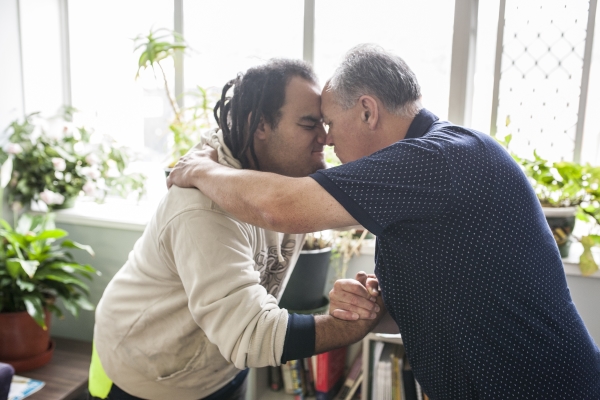Some sleep rough in the streets. Some live in overcrowded rooms, motels or night shelters. But all had a story to tell. And that was done, often with pain, always with honesty and courage.
“Te Hā Tangata — the Breath of the People, a Human Library on Homelessness” was held in Wellington from May 28 to 30.
The Compassion Soup Kitchen, Kahungunu Whānau Services, Te Whakamura Ai Te Ahi and Creativity in the Community students from Massey University collaborated to provide a platform for the homeless community to be heard. The event received funding and support from the New Zealand National Commission for UNESCO.
“It was an outstanding success,” said soup kitchen manager Karen Holland. “In fact, we would have considered it a success even if the event didn’t take place because of the transformative nature of the project between the students and the taonga. It was incredible.”
For the taonga, the “human books”, the project was an exercise in empowerment and discovery of their voices. They were called the “human books” in recognition of the fact that they were the experts on homelessness.
“Probably for the first time in their lives, someone genuinely listened to what they had to say,” said Mrs Holland.
“A lot of them discovered, that their story is worthwhile, that as human beings they have value,” she said.
The project was developed over three months. Massey University students asked each taonga what medium they (taonga) were comfortable working with: video, voice recording, public speaking or others. Some taonga wanted to tell their story seated on the floor because that is their perspective on the streets and they wanted the public to listen on their (taonga) level.
Mrs Holland said the word homeless often evoked “a faceless, amorphic group”. “Face to face with somebody who has experienced homelessness, you can see they are human beings just like you,” she said.
At the moment, there is no plan to hold a follow up activity to the project.
“We’d like our taonga to actually have a choice about where it goes to from here. Many of them want to continue with some sort of a project and so, some of them will continue working together”, she said.
Mrs Holland also called on Catholic parishes to help ease the problem of homelessness.
“I’d like to issue a challenge to all Catholic parishes that with the dropping in numbers of priests in our dioceses, I’m sure there are a number of parish homes that can be made available to some of the agencies who are looking to house some of our most vulnerable people,” she said.
Mrs Holland stressed that the New Zealand definition of homeless is not limited to those who are rough sleeping. Homeless people include those who are sleeping in overcrowded rooms, cars, temporary housing or night shelters.
“Just because someone’s got a roof ‘over their heads’ doesn’t mean to say they’re housed. They can still be technically homeless,” she said.

Reader Interactions